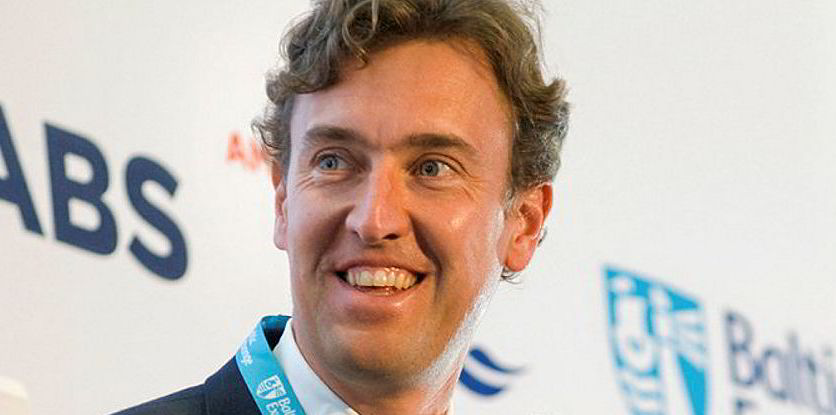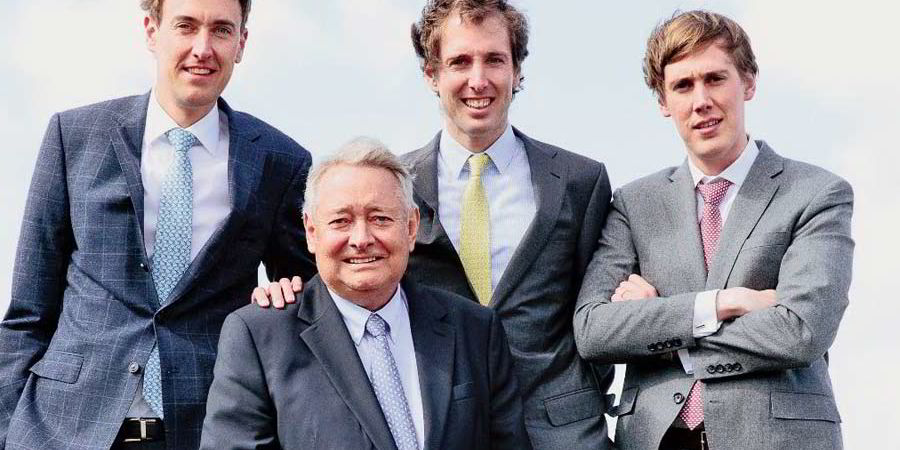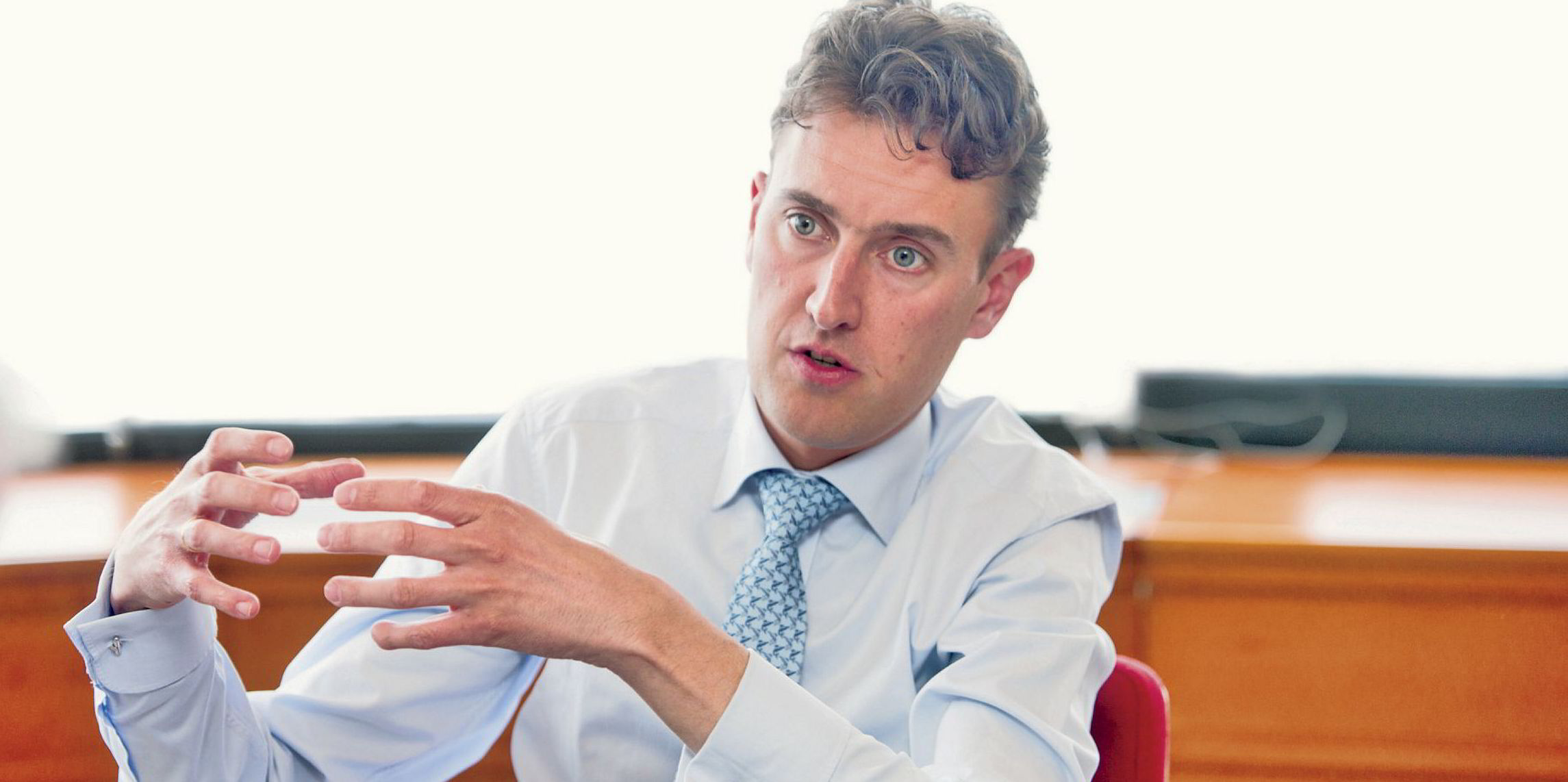Since taking the reins of shipping giant Compagnie Maritime Belge (CMB) six years ago, Alexander Saverys has emerged as one of the leading advocates for decarbonisation.
The ebullient 42-year-old believes shipping is passing through “one of the most exciting periods” in its history. Crisis after crisis, followed by “black swan” events, have forced the industry to ask tough questions of itself.

This story is one of 30 profiles in a special edition of our TW+ magazine.
To celebrate TradeWinds’ 30th birthday, TW+ is not looking back, but forward, with a Thirty@30 focus on the important people and issues extending out to 2050.
TradeWinds reporters have profiled 30 personalities who have shown traits that we think mean they will influence the directions the shipping industry takes, maybe not quite as far forward as the next 30 years, but certainly over the next decade.
Read all the profiles when TW+ is published on 16 October.
“We’re all questioning our jobs. Will we carry oil in 10 years from now? Will we carry coal? What kind of engines do we need? When we’re making money, these kind of questions are usually not asked.”
Saverys believes the industry recognises the need to overhaul its operation for its future good.
“I don’t think we can continue doing what we’ve been doing for the last 30 years. That will just not work.”
That philosophy has implications for Belgium’s CMB, whose fleet comprises 55 bulkers in its Bocimar division, 28 boxships at Delphis and seven chemical tankers through Bochem.
Saverys succeeded his then 61-year-old father, Marc, when he became chief executive in 2014. But he had already run his own container shipping company, Delphis, for the previous decade, although it operates as a subsidiary of the Antwerp-based group.
Today he heads a team that includes his younger brothers Michael and Ludovic, who are steering the group towards a greener future.
Specifically, he has moved to pioneer hydrogen as an energy source for shipping, as well as other low-carbon initiatives.
I don’t think we can continue doing what we’ve been doing for the last 30 years. That will just not work
Alexander Saverys
CMB was founded in 1895, when King Leopold II of Belgium requested regular shipping services to the Congo, and it marked its 125th anniversary with a pledge to offset its CO2 emissions to achieve net-zero status from this year.
That has been achieved by backing climate projects in developing countries and acquiring Voluntary Carbon Units in Zambia, Guatemala and India.
The move placed the company in an elite group of players that have set themselves the target of zero-carbon shipping by 2050.
CMB is investing heavily in the development of low- and zero-carbon ships and engines through a new division called CMB.Tech, which is pioneering tests on dual-fuel hydrogen combustion engines on a series of small vessels.
Having launched the hydrogen-powered, 13-passenger Hydroville in 2017, it is preparing for the HydroTug, the world’s first hydrogen-powered tugboat.
In September, CMB also unveiled a 1 MW dual-fuel engine as part of a BeHydro joint venture with engine maker Anglo Belgian Corp.
Saverys credits the young Swedish activist Greta Thunberg for raising awareness of environmental issues — “It’s because of her that this is what people think of and discuss in shipping circles.”
But he believes the shipping industry can do more to get up to speed. That will happen as the economics of low-carbon fuels start to stack up, he says.
“There are a lot of people we are talking to — from within our industry but also outside the industry — that start to see that this could become a business model. And it could go much quicker than people think. Much quicker.”
Saverys acknowledges that financial hurdles to new technologies remain. But he believes the cost differential will narrow as technology comes down in price. And he does not expect shipping to go from 100% diesel to zero overnight.
“If we do this gradually and we basically surf on the wave of falling costs for renewable energy, we can make this, and we can do it in a profitable way,” he says. “And more and more people are realising this.”
The hope is that the focus on low-carbon fuels will turn out to be a profitable business model for CMB. “I don’t think a lot of people are doing what we’re doing. But you will see a whole lot more people doing it.”






